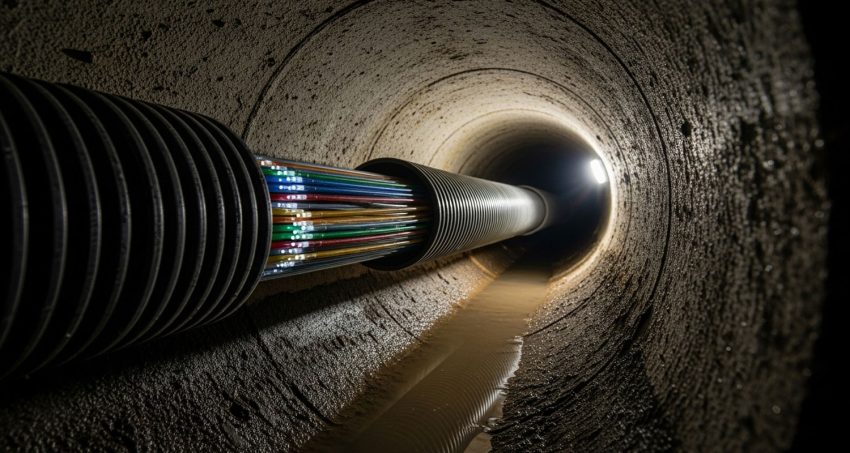Maziv-owned telecommunications infrastructure provider Dark Fibre Africa said on Wednesday that an R800-million upgrade to its network is helping it put instability issues in recent years firmly behind it.
The company said the upgrade, which has focused first on Gauteng, will soon expand to the rest of the country in phases 2 and 3 of the project.
According to Maziv chief operations officer Dewald Booysen, the R800-million upgrade – being the project’s cost to date – has included:
- A complete architectural redesign of DFA’s fibre network;
- A R400-million deployment of dry underground distribution cabinets to support high-volume access services and reduce service interruptions; and
- Digital automation and a new fibre management system to improve service delivery and fault management.
A phased migration onto the upgraded platform began in Gauteng in July 2025, with the Western Cape and KwaZulu-Natal set to follow, Booysen said.
“The overhaul responds directly to the pace of AI adoption, technological convergence and shifting customer needs — moving away from traditional designs towards a scalable, flexible and intelligent network…,” he said.
“While we’ve experienced challenges as a result of increased service interruptions and some infrastructure fatigue in recent years, this ongoing investment represents a fundamental redesign of our network architecture that will enable vastly improved connectivity.”
Between 2022 and 2023, DFA experienced numerous network incidents, mainly affecting customers in parts of Gauteng. This region represents the highest density of infrastructure for DFA’s network, making it the logical starting point for the network upgrade strategy, the company said.
One of the key drives for the business was the implementation of greater incident management efficiency. Upgraded digital systems now provide real-time reporting on incidents and fault maintenance, and greater accuracy in providing mean time to repair and service restoration commitments.
Consolidation drive
“To achieve this, we also kicked off a partner and contractor consolidation drive, improving accountability and consistency in customer experience. Together with automation at the network operations centre, this helped us improve our response to daily network incidents,” said Booysen.
DFA has also introduced a new fibre management system to better track assets, improve record-keeping, streamline maintenance and improve service delivery, he said.
Read: Vodacom fibre play pushes Maziv valuation above Telkom’s
The three phases of the project are:
- Phase 1: Focuses on Gauteng, with the migration of existing services from 1 July 2025 and continuing over 12-24 months.
- Phase 2: Extends into the Western Cape and KwaZulu-Natal over the following year.
- Phase 3: Covers the rest of the national network over two to three years. — (c) 2025 NewsCentral Media
Get breaking news from TechCentral on WhatsApp. Sign up here.
